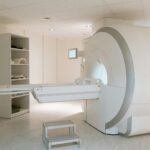When it comes to crafting a truly compelling and impactful resume, there are specific sections that play a crucial role in effectively showcasing your qualifications, skills, and career objectives. These sections not only provide important information but also help recruiters and hiring managers quickly understand your professional background and aspirations. By strategically incorporating these sections into your resume, you can increase your chances of standing out among other candidates and securing the job opportunity you desire.
Contact Information and Professional Summary
These sections are crucial for creating a strong first impression on potential employers. Tailor each section specifically to highlight your unique skills and qualifications relevant to the healthcare industry.
-
Contact details: This section provides your potential employers with the necessary information to reach out to you. Include your full name, phone number, email address, and professional social media profiles if applicable. Make sure this information is up-to-date and easily accessible.
-
Professional summary: The professional summary is a concise paragraph that highlights your key skills, experiences, and achievements in the healthcare industry. It serves as an introduction to your resume and should capture the attention of hiring managers. Focus on presenting yourself as a qualified candidate with relevant expertise.
-
Career objective: The career objective statement allows you to express your aspirations and goals within the healthcare industry. It should be tailored to align with the position you are applying for. Clearly state what you hope to achieve professionally and how you plan to contribute to the organization’s success.
Licenses, Relevant Skills and Certifications
In the field of healthcare, obtaining the necessary licenses, honing essential skills, and acquiring relevant medical certifications are vital steps towards establishing a successful career. Alongside these requirements, having technical expertise and specialized training can further enhance one’s professional capabilities.
-
Healthcare Licenses and Certifications: These serve as legal authorizations that permit individuals to practice in specific healthcare professions. These licenses ensure that practitioners have met the required standards and possess the necessary knowledge and skills to provide quality care. While hiring professionals and recruiters will ask for proof to confirm the status on the license anyway, having it on your resume is a good way to ensure that your resume ends up at the top of the list.
-
Personal Skills: Developing a comprehensive set of healthcare skills is crucial for professionals in this field. Effective communication, critical thinking, problem-solving abilities, compassion, and empathy are just a few examples of essential skills that contribute to delivering exceptional patient care.
-
Certifications: These play a significant role in demonstrating proficiency and expertise in specialized areas within healthcare. These certifications validate an individual’s knowledge and competence in fields such as cardiology, pediatrics, oncology, or any other specific area of practice. They not only enhance credibility but also provide opportunities for career advancement.
-
Technical expertise: With advancements in technology shaping the industry’s landscape, professionals who possess technical proficiency can navigate electronic health records systems efficiently and leverage digital tools for improved patient care outcomes.
Education and Academic Background
When it comes to educational qualifications, degrees earned, relevant coursework or specialization, and accredited institutions, it is important to have a clear understanding of their significance and how they contribute to one’s professional development.
-
Education: These are the certifications or degrees obtained by an individual through formal education. These qualifications serve as a testament to an individual’s knowledge and expertise in a particular field. They not only enhance credibility but also demonstrate a commitment to ongoing learning and growth.
-
Specialization: Specialization refers to focusing on a specific area within a broader field of study. It allows individuals to develop expertise in niche areas and stand out from the crowd. Specialization can be achieved through pursuing advanced coursework, research projects, or specialized certifications. If you plan to pursue a specialized field, it is vital to highlight whatever work you have done that is in pursuit of that.
-
Accreditation: Accredited institutions are educational establishments that meet certain quality standards set by accrediting agencies. Attending an accredited institution ensures that the education received is recognized and respected both nationally and internationally. Accreditation serves as an assurance of quality education, adherence to industry standards, and eligibility for financial aid programs.
Work Experience and Clinical Rotations
Prior work experience in the healthcare field, including clinical rotations or internships, is highly valuable and beneficial for individuals pursuing a career in this industry. These experiences provide hands-on exposure to the healthcare environment, allowing individuals to gain practical knowledge and develop essential skills.
-
Work Experience: Employers often value candidates with prior healthcare experience as it indicates their ability to handle challenging situations effectively while displaying empathy towards patients. Additionally, it provides a platform for networking opportunities within the industry that can lead to future employment prospects.
-
Clinical rotations: Clinical rotations and internships offer an opportunity to work closely with healthcare professionals, such as doctors, nurses, and allied health staff. This allows individuals to observe and participate in various aspects of patient care, such as taking vital signs, assisting with medical procedures, administering medications under supervision, and interacting with patients.
Moreover, these experiences provide a deeper understanding of the complexities of the healthcare system, including patient management, medical documentation, interdisciplinary collaboration, and adherence to ethical guidelines. Through active involvement in different healthcare settings such as hospitals or clinics during rotations or internships, individuals can develop critical thinking skills that are crucial for making informed decisions in real-life scenarios.
Additional Sections to Consider Adding
-
Professional Affiliations and Memberships
-
Achievements and Awards in the Healthcare Field
-
Languages Spoken
Resumes will ultimately differ strongly depending on the role professionals are applying for and what they bring to the table for that position. That being said, following this guide will ensure that applicants will get across all the core information that a hiring manager or recruiter is looking for. Even with a perfect resume, job hunting is a full-time job all on it’s own, so interested medical professionals should send in an updated resume or apply directly to an open role to get a helping hand from a specialized Radius recruiter. Connecting with us this way also allows interested professionals to sign up for our weekly newsletters, so apply now to keep from missing out!











